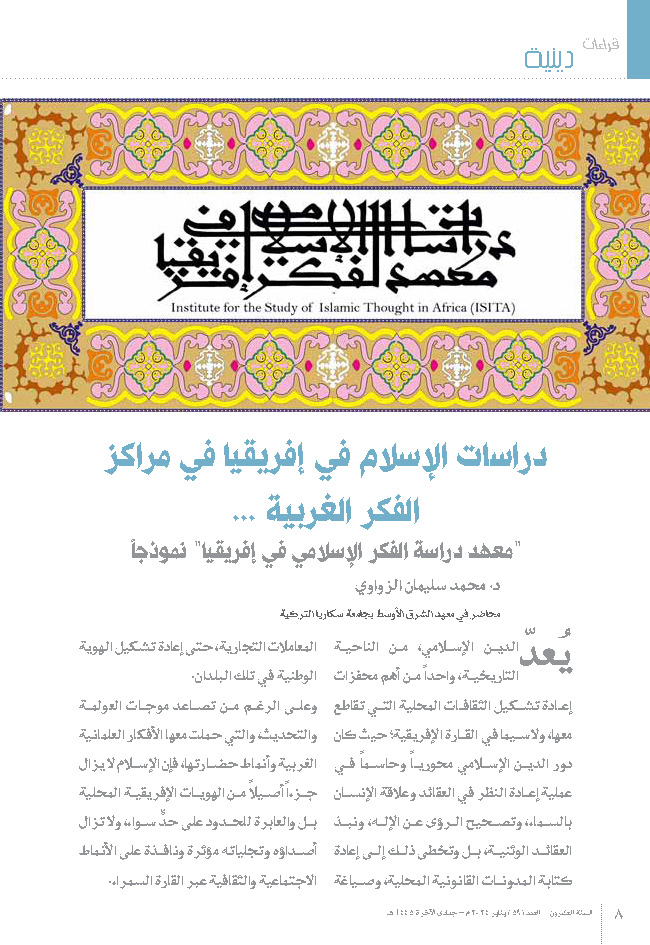Publisher: Qira’at Afriqiyah Magazine
Issue: 59, January 2024
ISSN: 2634-131X
Year : 20
Pages: 8-23
Author: Dr. Muhammad Suleiman Al-Zawawy
Download pdf

Abstract:
There is no doubt that the Islamic phenomenon in Africa has become the subject of study by many Western institutes and think tanks. Some even argued that the successful Western experiences in Africa were essentially based on the history of Islam’s success and peaceful spread and that unique relationship of brotherhood between the conqueror and the local population. That was in a total contrast to Western methods of traditional brutality based primarily on ethnic cleansing and genocide of indigenous people and the plunder of their wealth. Hence, the phenomenon of religion, especially the Islamic religion, was considered as an important phenomenon worthy of study in Africa, due to the unparalleled success of that doctrine that established civilizations and kingdoms extending from East to West Africa, and from South to North of it. Western thought centers were interested in studies of Islam in Africa. However, concerns have been raised about the potential for European bias, limited scope, and inadequate representation of the diverse reality of African Muslims. This study aims to conduct a critical evaluation of the representations of the African Islamic situation in Western studies and to identify the areas addressed by these studies. By answering the following questions: How are studies of Islam in Africa developing in Western think tanks and institutes?To what extent have these studies been characterized by objectivity or bias intheir treatment of Islam in African societies? What are the most prominent Western studies centers concerned with Muslim Africa? What are the most important topics and issues related to Islam in its African context that are addressed in these studies? What activities and events do these centers carry out in this context? The study was divided into a number of axes: • Conceptual introduction: deals with the concept of study centers. • The first topic: The history of Western studies on Islam in Africa. • The second topic: Contemporary studies on Islam in Africa in Western think tanks. • The third topic: The Institute for the Study of Islamic Thought in Africa (ISITA) model. • Conclusion: The most important results and recommendations.
